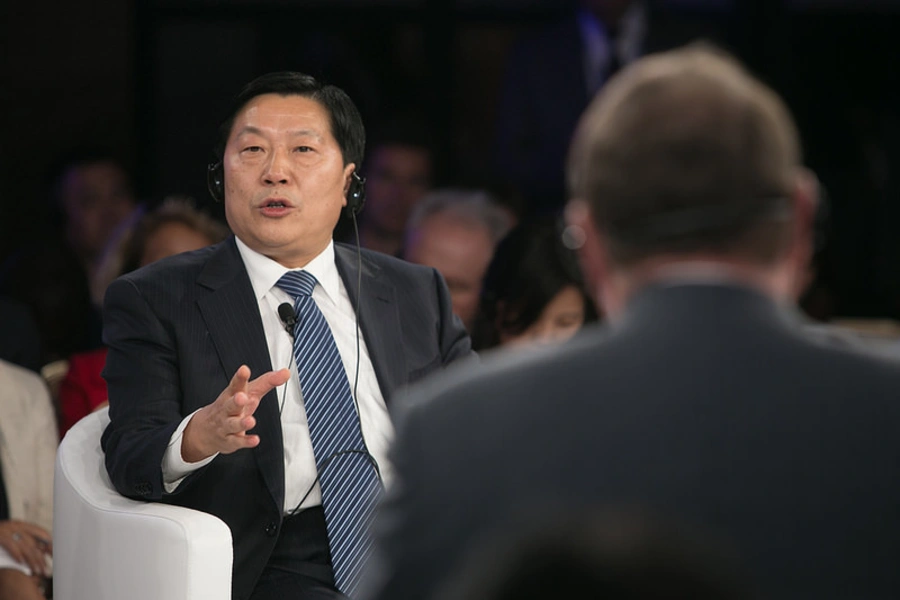Lu Wei: Four Rules for Being a "Good Chinese Netizen"

More on:
Lincoln Davidson is a research associate for Asia Studies at the Council on Foreign Relations. You can follow him on Twitter @dvdsndvdsn.
As China celebrates its second annual National Cybersecurity Week, top officials and the country’s leading papers have worked hard to spread the message that it’s not just the responsibility of the state to promote cybersecurity, but something all citizens should be concerned about and involved in. Building on Chinese President Xi Jinping’s claim that “without cybersecurity, there can be no national security,” they’ve called Chinese citizens to respect others online, teach children cybersecurity, stop swearing on the Internet, clear rumors from the web, and “inscribe cyber laws on their hearts." Backing up these exhortations is a new model of how Chinese citizens should use the Internet: the "good Chinese netizen."
In a speech (English translation) given at the National Cybersecurity Week opening ceremony in Beijing, Lu Wei, director of the Central Leading Group for Internet Security and Informatization—China’s top cyber policymaking body—said that for China to become a strong cyber power, the country first needs citizens who know how to properly use the Internet. He laid out the "four haves" of a good Chinese netizen:
- Have a high degree of security awareness online. "Cybersecurity is not just something that the state, experts, or other people have to deal with, but something each of us has to deal with as well," Lu said. He added that Chinese citizens need to internalize cybersecurity awareness to protect themselves on the Internet.
- Have a civilized approach to the Internet. That means not only ideological purity and adherence to the party’s main line, but also "consciously purifying the Internet of rumors, violence, scams, pornography, and similar sludge."
- Have law-abiding habits. Anything you can’t do offline, Lu said, you also can’t do online. The same rules that apply for maintaining order off the Internet apply on the web as well.
- Have the essential skills for self-defense online. These include being careful not to download unfamiliar programs, "share harmful information willy-nilly," use simplistic passwords, or fail to patch software.
To cultivate these these "four haves," Lu said government should:
- Increase publicity and education efforts on cybersecurity issues.
- Start at childhood, by "push[ing] cybersecurity into our schools, classrooms, textbooks, and minds ... so that, from a young age, children study, know, and understand security and form good online behaviors."
- Begin with itself. Individuals must work first to improve their own cybersecurity habits before helping others improve theirs.
- Get all of society involved.
The rhetoric in Lu’s speech draws on traditional Chinese Communist Party (CCP) political language with its calls for "mass mobilization" by "every level of party committee and government" to maintain cybersecurity, making it easy to ignore. However, the speech is a succinct articulation of what the Chinese government wants from its citizens online, and in that sense, it encapsulates the Chinese vision of the Internet.
With its second cybersecurity awareness week, China may be mimicking Western governments, which have responded to a sharp rise in the volume and severity of cyberattacks in recent years with similar attempts to raise public awareness. But contrast Lu’s speech and the abundance of attention it and China’s other cybersecurity week events have gotten in the the Chinese press with "National Cyber Security Awareness Month," held in the United States each October. Apart from a brief mention in a newsletter for cyber wonks and an article in The Hill by a member of Congress promoting some legislation he had sponsored, the event received little attention. What was written focused on substantive things U.S. citizens can do to make themselves more secure online—just one of Lu Wei’s "four haves."
The emphasis in official Chinese rhetoric on cyberspace—as it is offline—is on social stability. So while the message to business is "mobile Internet can substantially promote economic reform" or "provide support for the cybersecurity industry," and the military is given free rein to develop an active, offensive cyber strategy, Chinese netizens are told to develop "healthy online lifestyles" and big data is deployed by the government to promote "socialist core values." As Lu Wei argues in his speech, "the Internet is a double-edged sword." One edge points outward, one edge points in, while the CCP keeps a firm grasp on the hilt.
More on:
 Online Store
Online Store